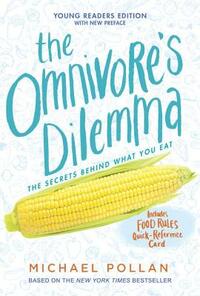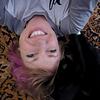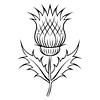Take a photo of a barcode or cover
This book is divided into four sections and explores the food industry from the industrial, industrial organic, beyond organic, and hunter/gatherer perspective. Fairly complex with details about the processing of meat. Grades 5+ if they are more advanced readers.
i think everyone should read this book. i bought an extra copy exclusively for circulating among friends - let me know if you'd like to borrow it.
Very informative. Some parts of the book that were a little more scientific dragged for me but overall enjoyed learning more about this important topic.
This was a fantastic and very informative book. I learned so much about the current food industry as well as how to really appreciate what nature offers us. I learned to understand the true cost of a meal and who pays for it too!
I have more now with which to mistrust the government. I also have more appreciate for the amazing way each type of food comes about..... mushrooms....yeast!
I have more now with which to mistrust the government. I also have more appreciate for the amazing way each type of food comes about..... mushrooms....yeast!
If I lived in the US, after reading this book I would probably become a vegetarian.
The discussion on the ethics of eating animals in this book is particularly well done, and I agree with Pollan's conclusion that yes, provided the animal has a good life and isn't made to suffer, then it's okay. But what happens in US feedlots, and to battery hens, is not okay with me.
I will be taking a closer look at where my food comes from after reading this book. I always buy free range eggs but for some reason I've never been so choosy with my meat - here in NZ we don't have feedlots, but I can't personally say I know exactly what goes on here between farm and supermarket, apart from at dairy farms and deer/ostrich farms (owned by relatives).
Definitely encourage anyone to read this book. It's definitely thought-provoking.
The discussion on the ethics of eating animals in this book is particularly well done, and I agree with Pollan's conclusion that yes, provided the animal has a good life and isn't made to suffer, then it's okay. But what happens in US feedlots, and to battery hens, is not okay with me.
I will be taking a closer look at where my food comes from after reading this book. I always buy free range eggs but for some reason I've never been so choosy with my meat - here in NZ we don't have feedlots, but I can't personally say I know exactly what goes on here between farm and supermarket, apart from at dairy farms and deer/ostrich farms (owned by relatives).
Definitely encourage anyone to read this book. It's definitely thought-provoking.
I’m way late to reading this book, so many of the shocking realities about meat production are now common knowledge. But I did find the premise of the 4 meals a useful way of understanding where our food comes from and the choices we make daily. As a vegetarian who is very sensitive to animal cruelty, some parts were difficult to read.
challenging
informative
medium-paced
Graphic: Animal cruelty, Animal death, Gore, Blood
informative
medium-paced
A fascinating overview of the U.S. food chain -- from seed to mouth.



